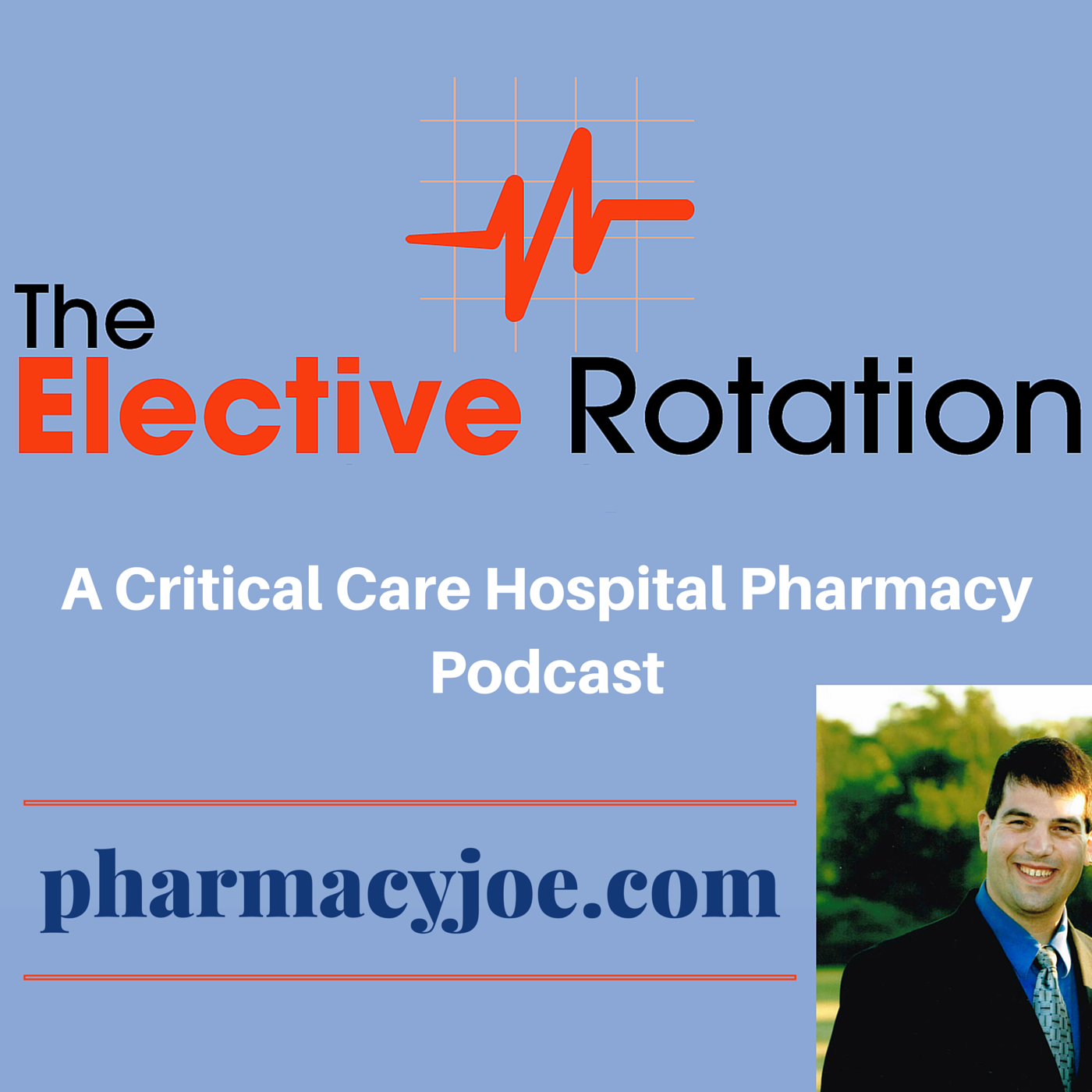In this episode, I’ll discuss whether patients taking beta-blockers require increased doses of epinephrine for anaphylaxis. Subscribe on iTunes, Android, or Stitcher Animal data suggests that patients taking beta-blockers have more severe anaphylaxis, possibly by decreasing the threshold for mast cell activation. With beta-blockers interfering with the same receptors epinephrine needs to activate in order […]
A free twice-weekly podcast where you can listen to critical care and hospital pharmacy information
Subscribe to the #1 ranked critical care and hospital pharmacy podcast, The Elective Rotation here:
Episode 903: Does the Number of Learners Trained Per Year Influence the Chances of an Inpatient Pharmacist Experiencing Burning Out?
In this episode, I’ll discuss the association between number of learners trained per year and rates of burnout among inpatient pharmacists. Subscribe on iTunes, Android, or Stitcher Burnout is defined as a work-related stress syndrome resulting from chronic exposure to job stress that consists of 3 dimensions: emotional exhaustion, cynicism and depersonalization, and reduced professional […]
Episode 902: The analgesic ceiling dose of ibuprofen applies to ED patients too
In this episode, I’ll discuss the analgesic ceiling dose of ibuprofen in ED patients. Subscribe on iTunes, Android, or Stitcher NSAIDs (including ibuprofen) have a ceiling dose beyond which, no additional analgesic effect is seen. I must have missed that part of the lecture in pharmacy school because I don’t remember encountering this concept in […]
Episode 901: Why Ketamine and Propofol Don’t Belong in the Same Syringe
In this episode, I’ll discuss why I think ketamine and propofol don’t belong in the same syringe. Subscribe on iTunes, Android, or Stitcher Ketamine and propofol are compatible in the same syringe, and several published studies have specifically stated that the two medications were placed in the same syringe. But just because we can, doesn’t […]
Episode 900: The Benefits of Using Fixed-Dose Prothrombin Complex Concentrate for the Emergent Reversal of Vitamin K Antagonists
In this episode, I’ll discuss uisng fixed-dose PCC for warfarin reversal. Subscribe on iTunes, Android, or Stitcher A recent systematic review and meta-analysis published in Critical Care Medicine has attempted to synthesize the data available on fixed vs variable dosing of 4-factor prothrombin complex concentrate for warfarin reversal in hopes to clarify the optimal dosing […]
Episode 899: Glucocorticoids Have No Role Reversing the Acute Symptoms of Anaphylaxis. Here’s Why:
In this episode, I’ll discuss why glucocorticoids have no role in reversing the acute symptoms of anaphylaxis. Subscribe on iTunes, Android, or Stitcher Despite epinephrine clearly being recommended as the first line of treatment for an acute episode of anaphylaxis, glucocorticoids continue to be given by many providers. The mechanism of action for glucocorticoids is […]
Episode 898: Knowing When Non-Medication Therapies Are First-Line Is Critical
In this episode, I’ll discuss the impact of giving epinephrine before defibrillation to in-hospital cardiac arrest (IHCA) patients with shockable rhythms. Subscribe on iTunes, Android, or Stitcher Knowing when a medication is the first-line treatment for a condition should be easy for pharmacists, as this is exactly what we spend our time on during training […]
Episode 897: Is It Necessary To Monitor QTc of ICU Patients Receiving Antipsychotics for Delirium?
In this episode, I’ll discuss whether ICU patients benefit from daily QTc interval monitoring during antipsychotic use for delirium. Subscribe on iTunes, Android, or Stitcher QTc prolongation is a known side effect of antipsychotic use. While the QTc itself is only a number on a sheet of paper, a prolonged QTc is often used as […]
Episode 896: Just How Bad Are PPIs When Continued Post-ICU Stay Without Indication?
In this episode, I’ll discuss the effect of unnecessary long-term continuation of newly initiated stress ulcer prophylaxis in the ICU on morbidity and mortality after hospital discharge. Subscribe on iTunes, Android, or Stitcher ICU patients are routinely started on proton pump inhibitor therapy for the purpose of stress ulcer prophylaxis. However, PPI use often continues […]
Episode 895: Why is glucagon not recommended in the calcium channel blocker poisoning guidelines?
In this episode, I’ll discuss why glucagon is not recommended in the calcium channel blocker poisoning guidelines. Subscribe on iTunes, Android, or Stitcher Critical Care Medicine has published in 2017 Experts Consensus Recommendations for the Management of Calcium Channel Blocker Poisoning in Adults. These guidelines list the following first line therapies prioritized based on desired […]
Episode 894: Correction of hypokalemia in a hyponatremic patient makes inadvertent overcorrection of hyponatremia more likely
In this episode, I’ll discuss how correction of hypokalemia in a hyponatremic patient makes inadvertent overcorrection of hyponatremia more likely. Subscribe on iTunes, Android, or Stitcher Shout out to “Pharmacy Alex” for inspiring this episode! During the correction of hyponatremia, care is taken to not correct the serum sodium too quickly. This is because the […]
Episode 893: Should Fludrocortisone Always Be Added to Hydrocortisone in Patients With Septic Shock?
In this episode, I’ll discuss adding fludrocortisone to hydrocortisone to treat patients with septic shock. Subscribe on iTunes, Android, or Stitcher There is a discordance in steroid recommendations for patients with septic shock between the Surviving Sepsis Guidelines, which recommend giving hydrocortisone and the 2020 Japanese Clinical Practice Guidelines for Sepsis and Septic Shock which […]
- « Previous Page
- 1
- …
- 16
- 17
- 18
- 19
- 20
- …
- 93
- Next Page »

